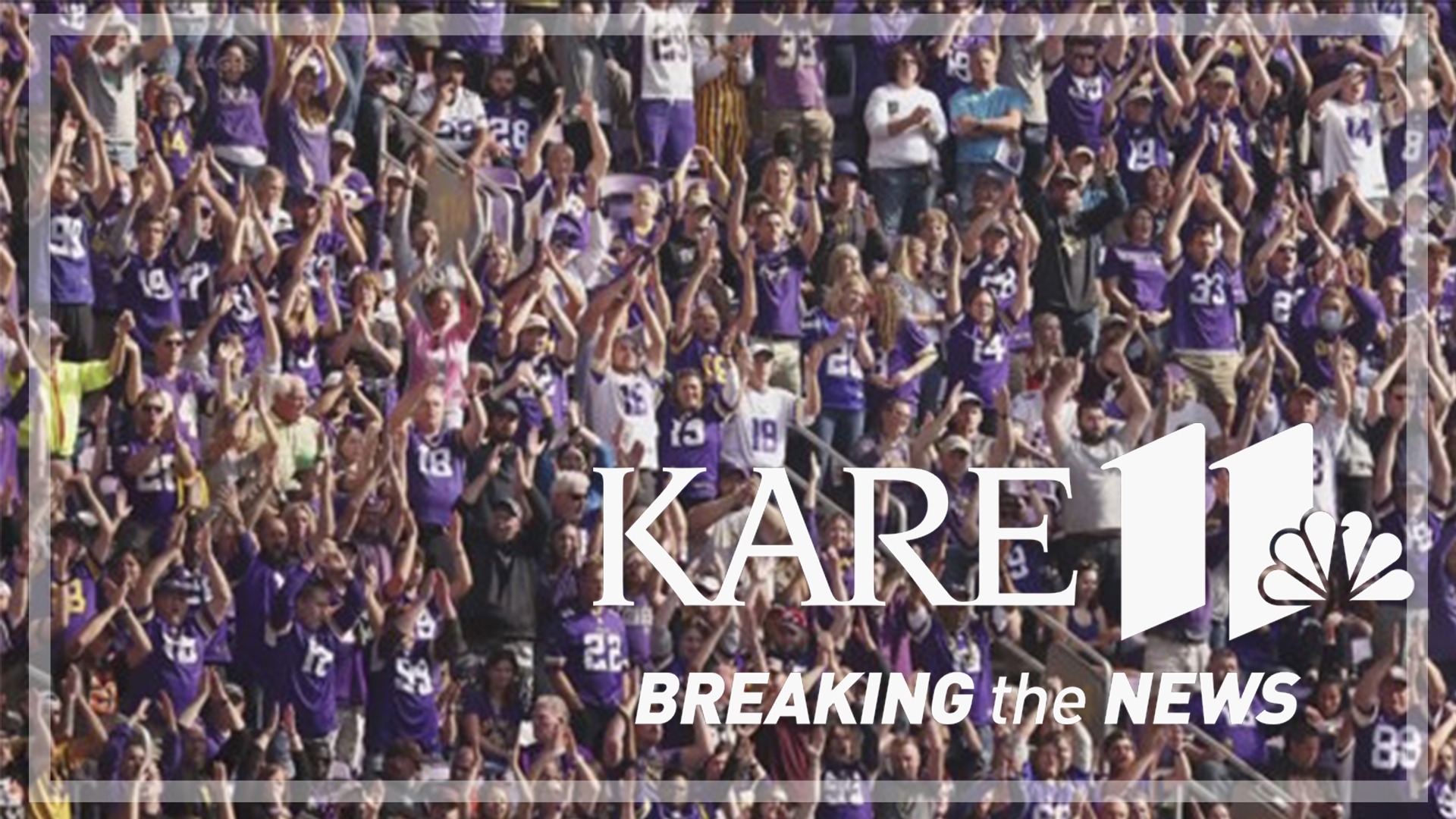MINNEAPOLIS — With the NFL's return this Thursday on KARE 11, there's plenty of discussion already happening about the league. There are the usual conversations – who's starting and who's out, which teams will make the playoffs – but there's a new layer this year.
What will privacy look like under the NFL's new facial recognition policy at stadiums across the league?
"It can be misused very easily, but at the same token, it is very beneficial to help secure these areas, to help ensure that people can get in and out quickly," Eric Ebner, chief technological officer at 360 Security Services, said. "And it is, it is a technological benefit."
Ebner said this change makes sense, as hundreds of thousands of fans flock to NFL stadiums on gameday.
"You look at other alternatives, a key card, a PIN code, those have a logistic burden. Key cards are notoriously able to be copied with, you know, things you can purchase off the internet. So if you're able to see, 'oh, hey, that person has press credentials,' you get close to them, you could copy that key code," Ebner said. "Now you've got those press credentials. It's much harder to copy their face and to spoof the systems that provide facial recognition."
That security is top of mind for the people working on this program with the NFL. Jeff Boehm is the chief operating officer at Wicket, a company using facial recognition software at stadiums and venues around the world.
Boehm said there's been some miscommunication shared on what their technology does.
"That's what's actually being used in Minnesota, the Vikings are using that just for credentialing," he said. "They're not using it for anything fan-facing at this point."
That means that for those just looking to watch the Vikings play, this won't impact you. At U.S. Bank Stadium, the only people this affects are those who require a credential.
"The NFL league-wide program is not for fans, so fans don't even have a choice of participating in that," Boehm said.
"There is a misconception out there that says we're scanning everybody within the stadium. We are not doing that. It is only at points of entry or at points of purchase for fans who choose to opt into this program," Boehm continued. "And again, that's not happening in Minnesota at all, because the Vikings right now are only using it for the NFL credentialing program."
In stadiums where this is happening with fans – Boehm said the Cleveland Browns and Atlanta Falcons both participate – fans still have the option to choose if they share that facial data.
Some have already chosen to opt-out who are not fans. The Las Vegas Police Protection Association has declined to share that data.
"It was just a lot for us, for officers that are already vetted, verified and confirmed who they are, to come to work an event and say, well, we need enhanced security against you guys as well," Steve Grammas, president of the LVPPA, said.
Its officers chose to not be scanned ahead of the Las Vegas Raiders preseason games last month. Grammas said despite their opt-out, nothing changed.
"Our Sheriff is standing side by side and shoulder to shoulder with us on this topic. But here's what's going to happen, the same thing that's happened with the last two preseason games. We're going to go there. We're not going to have biometric data. We're not going to be scanned," Grammas said. "We're going to go in there. We're going to do our job, and we're going to secure the facility."
Grammas said their concerns stem from how the facial data is stored, and for how long.
"Once we started digging into this and then having conversations with the agency, we made it very clear that there was big problems with us turning over biometric data, what they could do with that data, how long they would store it, who they may give it to," he said.
KARE 11 has reached out to the Minneapolis Police Department for their stance on this topic but has not heard back at the time of this article's publishing.
Boehm emphasized that data is secure, saying data is removed if fans opt-out.
"That data is stored securely. It's not sold or given to any third parties for marketing uses or for data analytics or aggregation purposes for anything else," Boehm said. "It is only kept for the purposes of, again, expediting entry into the stadium or speeding up your concessions purchases."

